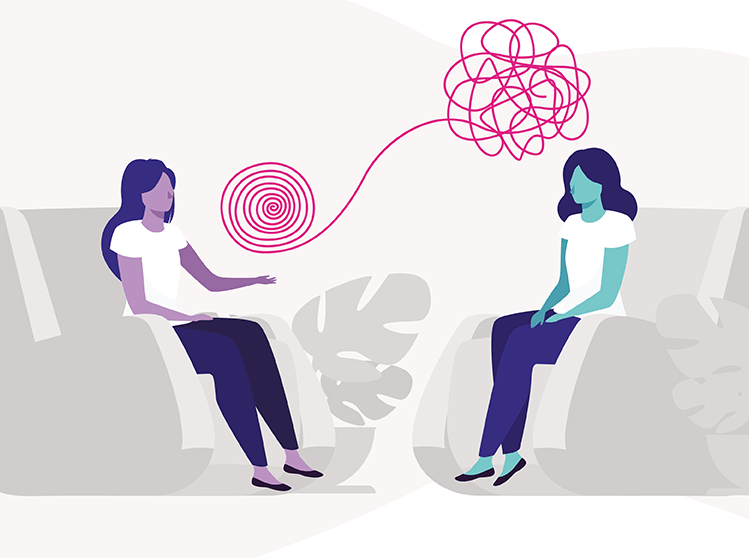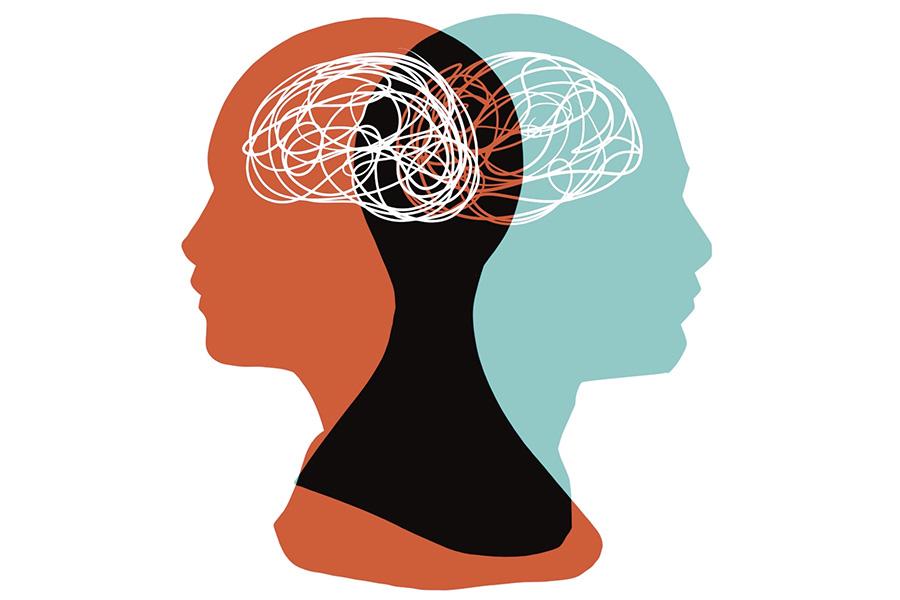Comprehensive Inpatient Mental Health Solutions for Effective Treatment
Inpatient psychological health and wellness services stand for a vital element of the health care system, providing a intensive and structured environment for people experiencing extreme psychological distress. These solutions employ a multidisciplinary technique, integrating numerous evidence-based treatments to address the complicated demands of patients. Nevertheless, the performance of such comprehensive treatment expands beyond prompt stablizing; it also includes the change to outpatient assistance, an important phase commonly ignored. Discovering the nuances of this continuum exposes significant effects for both specific recovery and more comprehensive mental health and wellness end results. What factors truly influence this transition, and how can we improve its effectiveness?
Recognizing Inpatient Mental Health Services
Inpatient mental health solutions supply essential support for individuals experiencing extreme psychological distress that can not be taken care of efficiently in an outpatient setting. These solutions are designed to supply an intensive degree of treatment in an organized environment, usually within a health center or specialized facility. Patients confessed to inpatient programs generally display acute symptoms, such as suicidal ideation, serious clinical depression, or psychosis, requiring round-the-clock tracking and treatment.
The admission procedure typically includes a comprehensive evaluation by psychological wellness professionals, that evaluate the individual's psychological state, background, and immediate requirements. When confessed, individuals participate in a selection of restorative techniques tailored to their particular requirements, including medicine management, private therapy, and team sessions. This alternative strategy intends to stabilize the client's condition, promote security, and foster coping skills.
Inpatient mental health solutions not only address instant health worries but additionally act as a bridge to ongoing treatment. By providing a regulated setting, these services promote the development of treatment strategies that can be continued in outpatient settings, hence ensuring a continuum of care and improving lasting end results for people with complex mental wellness demands.
Secret Elements of Effective Treatment
Efficient treatment in inpatient psychological health services consists of numerous vital parts that foster healing and stabilization. Primarily, a thorough analysis is vital to determine the person's specific demands and obstacles. This evaluation notifies the development of a tailored therapy plan, which works as a roadmap for treatment.
One more important component is the multidisciplinary group technique. Collaboration among psychoanalysts, psychologists, nurses, and social workers ensures that various perspectives add to the person's treatment, improving the effectiveness of therapy. Evidence-based restorative modalities, such as cognitive-behavioral treatment (CBT) and dialectical habits treatment (DBT), are additionally indispensable, offering structured techniques that attend to maladaptive thought patterns and behavioral issues.

Finally, a focus on aftercare planning is critical to guarantee a smooth transition to outpatient services, minimizing the risk of relapse and advertising lasting health. These collective components produce an effective treatment framework within inpatient mental health services.
Advantages of Comprehensive Treatment

Extensive treatment in inpatient mental wellness solutions provides countless advantages that substantially enhance person outcomes. One of the main advantages is the all natural strategy to treatment, addressing not just the psychological signs and symptoms yet likewise the physical, social, and emotional needs of patients. This comprehensive assessment enables tailored interventions that promote general wellness.
Another benefit is the assimilation of multidisciplinary groups, which promotes cooperation amongst healthcare experts. This joint atmosphere makes sure that patients obtain collaborated care, reducing the danger of fragmented treatment and improving interaction among caretakers. Additionally, comprehensive care promotes continuity of services, enabling for seamless transitions from inpatient to outpatient settings, which is vital for long-term recuperation.

Last but not least, the structured setting of detailed inpatient treatment offers a safe space for individuals to take part in restorative tasks, assisting them establish dealing strategies and resilience. Jointly, these advantages add to a lot more reliable treatment and boosted lifestyle for people experiencing psychological wellness crises.
Evidence-Based Healing Methods
In the realm of psychological wellness treatment, evidence-based restorative strategies play a critical role in making certain that patients get effective and scientifically sustained interventions. These approaches integrate the finest available research study with professional experience and individual worths, promoting a tailored therapy experience that attends to individual needs.
Cognitive Behavioral Therapy Related Site (CBT) is among one of the most widely recognized evidence-based techniques, concentrating on identifying and transforming adverse idea patterns and actions. This structured method has demonstrated efficiency in dealing with conditions such as stress and anxiety, ptsd, and depression. Likewise, Dialectical Behavior Modification (DBT) is especially efficient for people with borderline individuality condition, stressing the development of psychological law and interpersonal efficiency abilities.
Additionally, medicine monitoring is usually an indispensable part of evidence-based therapy, as psychotropic drugs can minimize signs and improve total functioning. Collective care versions, which include multidisciplinary groups, additionally enhance the efficacy of inpatient solutions by making sure thorough examinations and continual surveillance.
Eventually, the integration of evidence-based restorative techniques not just promotes favorable clinical end results but likewise empowers individuals, promoting a sense of firm and strength in their mental health trips.
Transitioning to Outpatient Assistance
The change from inpatient mental wellness services to outpatient assistance notes an essential stage in an individual's recovery trip. This period requires mindful preparation and control to guarantee connection of treatment and to mitigate the threats of relapse or dilemma. Reliable discharge preparation ought to commence early in the inpatient stay, entailing a multidisciplinary group that consists of psychoanalysts, psycho therapists, registered nurses, and social employees.
Key aspects of a successful change consist of the growth of a comprehensive aftercare strategy tailored to the person's certain demands. This strategy must detail follow-up consultations, medicine monitoring, and restorative interventions, as well as recognize community resources and support system that can assist in ongoing healing.
Furthermore, patient and family members education and learning is important during this phase. Understanding the indicators of possible problems and the significance of adhering to treatment can equip people and their support systems.
Regular follow-up and reassessment of the outpatient strategy are necessary to deal with evolving challenges. By fostering Click Here a joint partnership between inpatient and outpatient suppliers, the likelihood of sustained healing rises, ultimately improving the client's lifestyle and minimizing the risk of readmission.

Conclusion
In recap, extensive inpatient psychological wellness services offer an important structure for resolving severe mental distress via a multidisciplinary method. By integrating evidence-based treatments, promoting an organized environment, and advertising family members participation, these solutions improve treatment effectiveness. The emphasis on security and the advancement of coping abilities not only help in instant healing however likewise facilitates a smoother transition to outpatient treatment. Eventually, such comprehensive treatment is essential for long-lasting mental health and wellness and well-being.
The admission procedure usually entails an extensive assessment by mental wellness specialists, who examine the person's mental click for more state, history, and immediate needs.Reliable therapy in inpatient psychological health services consists of a number of vital elements that foster healing and stablizing.Extensive treatment in inpatient mental health and wellness services uses countless benefits that dramatically enhance individual outcomes.The transition from inpatient mental health and wellness services to outpatient support marks a crucial phase in an individual's recovery trip.In recap, thorough inpatient psychological wellness solutions offer a vital structure for attending to severe psychological distress through a multidisciplinary method.
Comments on “Effective Inpatient Mental Health Treatment for Enduring Wellness”